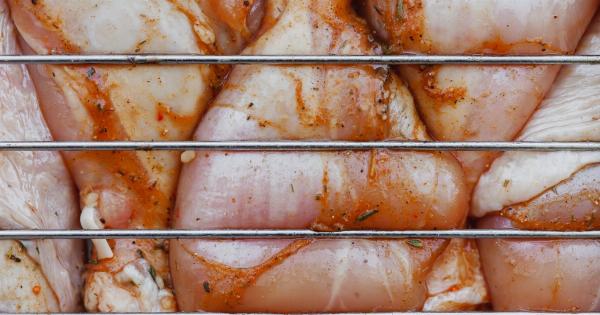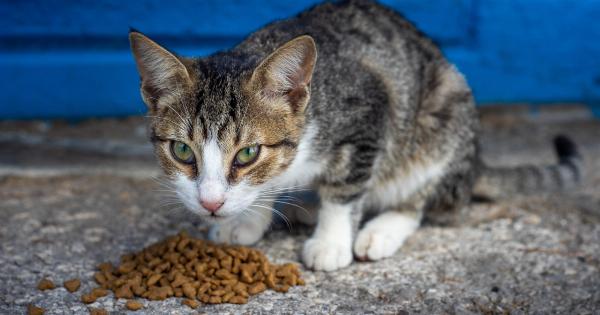As pet owners, it’s our responsibility to ensure our furry friends receive the right nutrition they need to maintain a healthy lifestyle.
Most of us jump into the conclusion that all pets like the same things we do, but it’s actually a bit more complicated than that. We have to take their breed, age, weight, and medical history into account. How do we know which food is best suited for our pets to keep them healthy and happy? Read on and let’s explore the world of pet nutrition and the delicacies they crave.
Types of Pet Food
There are primarily three types of pet food: dry food, wet food, and raw food. Different types have different qualities, calorie counts, and nutrient profiles, and you should choose one specific to your pet’s needs.
Dry Food
Dry food comes in the form of biscuits or kibble. It’s convenient, easy to store, and can be left out all day long. It’s also less expensive than wet food and has a longer shelf life.
On the downside, it may be less palatable than wet food because it lacks the moisture content and aroma that pets crave. Some pets may also find it challenging to digest.
Wet Food
Wet food is high in moisture content and has more aroma and flavor, which makes it more appealing to pets with picky appetites. It’s also more comfortable to digest than dry food because of its moisture content.
Wet food is usually pricier than dry food and has a shorter shelf life, so it’s important to keep it refrigerated.
Raw Food
Raw food involves feeding your pet a mix of raw meat, bones, and organs. Advocates of raw food argue that it’s the most natural form of feeding as it tries to mimic the diet of wild ancestors.
It’s also free of chemicals, preservatives, and artificial additives. However, raw food is expensive and needs to be stored correctly to prevent contamination and illness.
Nutrition Requirements
Pets have different nutritional requirements depending on their breed, age, weight, activity level, and medical history. Here are some basic guidelines that apply to most pets below:.
Proteins
Pets need high-quality protein in their diet to build and repair tissues, support immune function, and promote healthy skin and coat.
The source can come from animal-based products, such as chicken, beef, or fish, or plant-based products, such as soy, legumes, or peas.
Fats
Fats provide a concentrated source of energy and are essential for the absorption of fat-soluble vitamins, like vitamin A and E.
It also aids in maintaining a healthy coat and skin, supports the nervous system and brain function and can even promote weight loss. The source of fats can come from animal-related products, such as chicken, fish or beef, or plant-based products, such as flaxseed, canola oil, or safflower oil.
Carbohydrates
While pets don’t require carbohydrates in their diet, they can be included to provide a source of fiber, energy, and vitamins. Carbohydrates come from plant-based products such as brown rice, sweet potatoes, or legumes.
Vitamins and Minerals
Pets require trace minerals and some essential vitamins to stay healthy. These minerals include calcium, zinc, iron, and potassium, while essential vitamins include A, B, C, D, E, and K.
However, it should be noted that excessive quantities of these nutrients can be harmful, so it’s necessary to follow guidelines for dosage and intake.
Delicacies for Your Pets
Pets can get bored with the same old food, so it’s important to mix things up and treat them with some delicacies. Here are some pet-approved delicacies that you can give your furry friend:.
Home-Cooked Meals
Feeding your pet with home-cooked meals is an excellent way to show them you care. Cooked meat,vegetables, and grains with the right balance of nutrients can be a healthy and tasty alternative to commercial pet food.
However, ensure you talk to your vet about the right balance of nutrients for your pet.
Fruits
Fruits such as apples, bananas, and watermelons can make for a refreshing and nutritious snack for your pets. However, avoid grapes and raisins, which can be toxic to some animals such as dogs and cats.
Vegetables
Vegetables such as broccoli, carrots, and sweet potatoes can provide your pet with some roughage, fiber, and nutrients. However, avoid onions, garlic, avocado, and mushrooms, among others, which can be toxic for some pets.
Meat
Giving your pets bite-size pieces of grilled chicken, beef, or fish can be a tasty treat for them. Avoid feeding them cooked bones as they can splinter and cause harm to your pets.
Dairy
Moderate amounts of cheese or yogurt can provide calcium and essential probiotics that can be good for your pet’s gut health. However, pets with lactose intolerance should avoid dairy products altogether.
Conclusion
Pet nutrition is essential to maintain their overall health and wellbeing. Depending on your pet’s breed, age, weight, and medical history, it’s vital to choose the right type of food and balance nutrients to keep them healthy.
As a pet owner, you can treat your furry friend to some delicacies like home-cooked meals and fruits, but make sure they are safe and beneficial for your pet. With the right nutrition, your pet can look forward to a long and happy life with you.






























